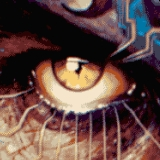I think it’s more complicated than free will existing or not.
If you knew every single possible value about the universe at its start and had a perfectly accurate model of physics, you could theoretically predict/simulate everything that would ever happen. For practical reasons, though, that’s impossible, even ignoring weird quantum effects, for the simple reason that that is a lot of data points, more than any of us could reasonably keep track of- it’s like how, in sufficiently controlled conditions, a fair dice can roll the exact same number 100% of the time, but there are enough variables that are hard enough to control for in a normal situation that it’s basically random.
Similarly, if you knew everything about every human on Earth, you could theoretically predict exactly what any of them would do at any given moment. Of course, that’s just not practical- the body and brain are a machine that is constantly taking in input and adapting to it, so in order to perfectly predict someone’s thoughts and actions, you’d need to know every single detail of every single thing that has ever happened to them, no matter how small. Then, you’d need to account for the fact that they’re interacting with hundreds of other people, who are also constantly changing and adapting. It’s just not possible to predict or control a person for any reasonable length of time like that, because one tiny interaction could throw off the entire model.
Just look at current work with AI- our modern machine learning algorithms are much more well-understood and are trained in much more contained environments than any human mind, and yet we still need to manually reign them in and sift through the data to prevent them from going off the rails.
So, technically, I suppose free will doesn’t exist. For practical purposes, though, what we have is indistinguishable from free will, so there’s not much point getting riled up about it.
Now see, if you’re looking at things from a biological point of view, it’s important to recognize the forest from the trees. A few trees are, well, just a few trees. But a great many trees together constitutes a forest, and becomes more than the sum of its parts. I feel the same way about the human brain. Yes, it’s a series of electrical and chemical impulses, but there are so many of these working in tandem that it becomes exponentially more complex, akin to ever-advancing computer technology. It’s complex enough that we think, we talk, we make decisions. And those decisions aren’t based solely on instinctional drive, and can even be made in opposition to them.
It’s true that human behavior can be accurately predicted based on an individual’s natural tendencies, but there are never any guarantees. There’s always a choice, a chance to veer off course. Decisions can be prudently made after careful research, or made on a frivolous impulse. Maybe you even realize that you would ordinarily take one action in a given situation, but do the exact opposite. You consciously chose to ignore your first impulse. If free will is an illusion, it’s a damned convincing one.
I have the feeling most people cling to free will as a concept because not having free will raises questions if a “self” truly exists. However the existence of free will can be as scary if not more, since how could we define a “self” if it could freely do something not based on what defines it.
The concept of belief is rooted in free will, is it not?
Not necessarily, no. You may believe something and yet not be free to believe otherwise.
I live my life as if I have unlimited free will, and I view the world as if everyone else is fully determined by their circumstances. And then I just ignore the contradiction. Ez pz
Best answer.
I just wanted to say that if you guys truly want to see what serious answers can be given to these type of questions you can always take a look into philosophy and just so happens I’m trying to build a philosophy community on Kbin so feel free to check m/AskPhilosophers, and m/LearnPhilosophy.
You react to choices the specific way you do because of experiences you’ve had previously.
Reverse time without changing anything, you’ll always make the same choices because you’re having the same thoughts each time every time, because you’ve been conditioned the way you are.
The universe doesn’t “know” where it’s going, but the plan is already in action. You can choose whatever you want to do, but if you were the same person in the same circumstance, you would and will always make the same decision.
You forget, the underpinnings of physics involve a heavy dose of randomness. Contrary to the opinion of a certain famous scientist, God does, in fact, play dice. Lots and lots of dice.
So no, the universe is not deterministic.
Note that this doesn’t mean free will exists. Your decisions may not be entirely predetermined, but them being determined by random chance doesn’t fit the definition of free will, either.
Throughout human history we say things can’t be done until they suddenly get done. I’m half assing it for all free will discussions, and leaping to the conclusion that its deterministic in a way we haven’t yet discovered. My shortcut is wrong, but in such an oh-so-right way! :P
The question is underspecified. Why do you want to know if free will exists? What will you do differently if it does exist vs if it does not exist?
This is similar to questions like, “is water wet?” You can generate endless debate on the topic, but it’s all intellectual masturbation until you are genuinely looking for the answer to a specific question.
No.
The licanius trilogy explores this really nicely. If you’re a sci-fi or fantasy fan I really do highly recommend them.
Hopefully without spoiling too much, the future being predetermined doesn’t necessarily prohibit free will. In the same way we can’t travel backwards in time we can’t travel forwards faster. Everything has happened, both in the past present and future, but it’s still the decisions of the people that led to and lead to the outcomes that exist. The past is just as postdetermined as the future is predetermined, if that makes any sense.
It’s weird but I liked it.
Here is a good lecture from Robert Sapolsky on Human behavioral biology that will replace your question with more questions:
https://www.youtube.com/watch?v=NNnIGh9g6fAFor me, I’ve always struggled with the definition of free will. Is there even a will to be free? The voice in my head is just a story “I” tell myself. So really, I’m just this conscious presence. I can observe thoughts that manifest within that presence. But those thoughts aren’t under my control. They’re just occurring.
I remember watching a video from Sam Harris years ago that really brought this to the forefront. Think of a movie. Any movie. What is it? Why did you pick that movie? Did you have conscious control over what movie you picked? Or did it just pop into your consciousness?
Either everything is purely deterministic, purely random, or something in between. But on that spectrum, there really isn’t room for free will. Simply the illusion of it.
Some entities are more deterministic than others. A rock is more deterministic than an animal and a human is less deterministic than an animal because its “causal inertia” (the opposite of free will) is weaker: it can be influenced by more factors than the rock and is more unpredictable. Some people lead more deterministic lives than others.
I would say you’re referring more to complexity than determinism. More variables increases complexity but doesn’t necessarily decrease determinism. It depends on whether you believe some of those variables include true randomness though. For example, does quantum randomness affect anything? We’re led to believe it has no real effect on a macroscopic scale, but perhaps over a large enough amount of time and across a large enough set of variables the effect becomes noticeable. If that’s the case, determinism breaks down.
I’d say free will exists. Sure, you are shaped by your environment, your genetics and so on, but in the end you can still decide what you want to do. In theory I could simply quit my job tomorrow, wander off into the sunset and then drown in the next ocean. Or as someone brought up criminals, you could stab someone just trying to disprove the universe is being deterministic.
If you know every single atom in this moment and had unlimited computing power, you’d probably be fantastic at telling the weather. Or if you map every neuron in someone’s brain you might know what they are about to do next. But at this point you are just looking at the present data and can maybe calculate the next few seconds (but not even that is 100% sure, just a very good guess).
The question is how far forward would you be able to look just based on current and past data? A minute? A day? A month? At that point the whole thing breaks apart in my opinion. It’s like looking at the stock market where you have tons of past data and think you can predict the future simply based on that.
There’s so many complex sources of randomness, the most likely solution is that things are just that, random. And you can decide what you want to do with your own life, at least until you die (or don’t, who knows what the future brings). Honestly the whole question is dumb, there is no single being that knows everything, so it really doesn’t matter. In the grand scheme of things even humanity is just a tiny blip on the timeline and we’re with very high probability not unique. Just based on numbers there is a high chance other life forms have existed before us, might exist right now with us (somewhere else in the universe I mean, there’s also plenty on Earth) and will exist in the future.
What makes you think anything you could do is not based on previous conditions? I don’t think any of your examples, by themself, say anything about determinism or free will.
If the universe would be fully deterministic and you’d have all Data and unlimited computing power you could predict any point in time.
That’s just saying a being with perfect knowledge knows everything. It’s nonsense.
We already know systems change when observed (See the current work on quantum physics). But there is no all-knowing being who could do the observation.








